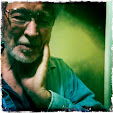“The promise of 1962 was that a new elite would leave behind the cronyism and corruption of the old order, ruled as it was by the Church in culture and the English in business. That, 50 years on, Quebec would be having yet another of its periodic corruption inquiries was not the dream of 1962.”National Post, November 15, 2012
“This is something more than just another Quebec corruption scandal. It is the betrayal of the grand project of 1962. The new masters of the house came, and they looted it.”
By Father Raymond J. de Souza
 |
| Fr. Raymond J. de Souza |
So there are some limits. Gilles Vezina, a senior Montreal bureaucrat, testified this week that bribes and kickbacks were part of the “business model” of his city’s public works contracting. However, on Tuesday he told the Charbonneau commission that he turned down the offer of prostitutes. Hockey tickets, yes; hookers, no. There is apparently still honour among thieves.
Monsieur Vezina was, once upon a time, among the new generation of leaders who would build the new Quebec - secular, centralized, nationalist - under the direction of the state. They were the bold souls who would lift the veil on la grande noirceur (“the great darkness”, as it is called) of the Maurice Duplessis years. It turns out that Quebec’s new bureaucratic elite rather liked working the shadows themselves.
 |
| Gilles Vezina |
The key proposal was the nationalization of the hydroelectric industry. The new pilot of Quebec’s economic development would be Lesage’s star minister, Rene Levesque.
The promise of 1962 was that a new elite would leave behind the cronyism and corruption of the old order, ruled as it was by the Church in culture and the English in business. That 50 years on Quebec would be having yet another of its periodic corruption inquiries was not the dream of 1962.
If 1962 marked a new moment for Lesage and Levesque, it also brought Pierre Trudeau to new prominence. That year, he published in Cite libre his famous essay, La Nouvelle Trahison des Clercs, excoriating Quebec’s new intellectual class. Trudeau accused them of betraying Quebec by their embrace of nationalism and separatism.
Trudeau’s title was adapted from Julien Benda’s 1927 book La Trahison des Clercs, in which the French writer assailed his own country’s intellectuals for abandoning their classical Christian tradition in favour of ignoble political ideologies, including those of nationalism and race. It was translated into English as the “betrayal of the intellectuals.” But clercs in the original French has a powerful dual significance. The secular intellectuals were the new clercs, taking over the role once played in France by the actual clergy.
Quebec decided in 1962 to entrust its future to another breed of clercs, the actual clerks of the modern state bureaucracy. If the problem of the great darkness was that it was priest-ridden, the new Quebec would be led into the light by the trained, efficient clerks of its public service. They would run not only public services, but the electricity industry, the education establishment and much else besides.
Trudeau saw all this emerging, and sounded the alarm in that critical year. The new clercs were committing a new betrayal, he argued. They were handing over the rights of Quebecers to another collectivist dream.
Read more:
http://fullcomment.nationalpost.com/2012/11/15/father-raymond-j-de-souza-the-quiet-revolutions-corrupt-children/
------

No comments:
Post a Comment